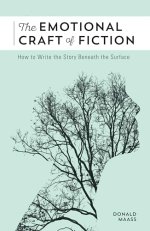iwatchus
Older than that
- Joined
- Sep 12, 2015
- Posts
- 2,843
So, I spent most of the weekend watching Brandon Sanderson's lectures on writing SF&F, from a course he teaches at BYU. (For anyone interested. it's here) I'm still processing the info. But I have some reactions.
For some background, I have never had any training at all in writing fiction, other than a few weeks here and there in high school. I never took a single English class in college. I was taught to write proper academic writing in grad school, but that is largely very different. Whatever I do is either instinct from past reading, although I have not read much fiction in over forty years, or from the discussions on this forum. (Yes it does happen and it is useful.)
First, I would not have been ready to take advantage of these lectures six months ago before I started writing again. Probably not even three months ago. I needed to spend more time writing first. I have written just over 650K words in the last six-plus months and I learned a lot about writing and myself in that.
Second, it has me reconsidering what I want to be writing, probably shifting me to more novels. I have been writing mostly novella length stories, but finished my first novel (120K) about a month ago.
Third, I think my revisioning will be better. I hope so at least. Not my strong suit, to say the least. I think it will make me a better editor/reader for others, I role I find I am enjoying in limited dose (i.e., I am not looking for additional writers to read for at this time.)
Fourth, that man has a massive ego.
Are there other resources people would recommend?
Finally a big thank you to @TheRedLantern (and I guess indirectly @ChloeTzang ) for pointing me at the lectures. I do think it will make me a better writer and reader for other writers.
For some background, I have never had any training at all in writing fiction, other than a few weeks here and there in high school. I never took a single English class in college. I was taught to write proper academic writing in grad school, but that is largely very different. Whatever I do is either instinct from past reading, although I have not read much fiction in over forty years, or from the discussions on this forum. (Yes it does happen and it is useful.)
First, I would not have been ready to take advantage of these lectures six months ago before I started writing again. Probably not even three months ago. I needed to spend more time writing first. I have written just over 650K words in the last six-plus months and I learned a lot about writing and myself in that.
Second, it has me reconsidering what I want to be writing, probably shifting me to more novels. I have been writing mostly novella length stories, but finished my first novel (120K) about a month ago.
Third, I think my revisioning will be better. I hope so at least. Not my strong suit, to say the least. I think it will make me a better editor/reader for others, I role I find I am enjoying in limited dose (i.e., I am not looking for additional writers to read for at this time.)
Fourth, that man has a massive ego.
Are there other resources people would recommend?
Finally a big thank you to @TheRedLantern (and I guess indirectly @ChloeTzang ) for pointing me at the lectures. I do think it will make me a better writer and reader for other writers.
